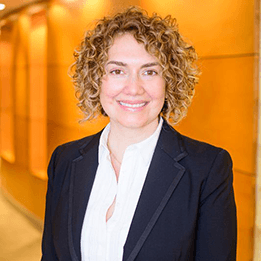

Vice president legal, compliance and risk management | AFP Integra



Daphne Zagal Otiniano
Vice president legal, compliance and risk management | AFP Integra
What has been the number one challenge that has impacted you over the past year?
I would say that my biggest challenge has been taking over the risk area. Currently I am responsible for legal, compliance and corporate governance, but also for managing the areas of operational risk management, data protection, cyber security, business continuity and investment risk management. As we are a company that manages third party assets, in order to provide retirement pensions, proper and efficient risk management becomes crucial. This addition to my team has enabled the management of all the company’s risks by strengthening the second line of defence and allowing us to impose better controls. This has involved analysing and rethinking all risks to make good use of the point that we manage all second line risks in the company – legal, compliance and risk.
The consolidation of the second line of defence has also led to great achievements in the other areas of my responsibility. For example, within investments, we have just completed a secondary sale of alternative assets representing almost 15% of the alternative assets managed by fund three, we manage four pension funds together with mandatory and voluntary funds, and with a value of around $150m. This is a unique and very challenging operation, never done before for an AFP in Perú, and the first of its kind in Latin America. We have also participated in numerous negotiations with the Peruvian government and other third parties to protect our members’ funds.
My team has also had active participation in all legal aspects of the sixth tender for new clients within the private pension system; this represents, for AFP Integra, approximately 1 million new clients in the next two years from June 2023; with the active participation of the legal area we had won the last three tenders that had led AFP Integra to go from 2 million members to almost four million members in the last six years; this situation represents the reaffirmation of AFP Integra’s leadership in the industry.
We have also submitted to our regulator (Superintendencia de Banca, Seguros y AFP) an innovative proposal to be able to register new and different types of voluntary funds; this proposal is the first of its kind among Peruvian AFPs.
We have been actively leading the discussion and issuing proposals related to the reform of the Peruvian private pension system.
Within AML and compliance, to enhance the way we handle our clients’ data; we have completely changed our data protection management process. We have also obtained, for the fourth consecutive year, the Anti-Bribery Certification issued by Empresarios por la Integridad (Entrepreneurs for Integrity).
We have changed the handling of complaints through our ethics line; there is now a third party handling the complaints ensuring confidentiality and the correct allocation of complaints.
Within corporate governance, in order to use better tools in the management of board meetings, we have changed the tool that allows directors to receive and manage all live, updated information. To manage the confidentiality for all the information within each meeting, we have gone from using Gobertia to implementing Dillitrust.
Additionally, we have completely restructured the meetings, the agenda, and the topics presented in the shareholder meetings, the board of directors, the audit committee and the risk committee in order to improve the decision-making process.
Looking forward, what technological advancements do you feel will impact the role of in-house legal teams in the future the most?
I would definitely say artificial intelligence (AI); AI is a real thing and for us lawyers it represents a change in the way we conduct our activities; our added value now has to be in the analysis of the law, not in the law itself, as the latter information will be and is being provided by technology.
What is a cause, business related or otherwise, that you care about, and why?
Definitely diversity and inclusion; it is real that there is a glass wall for us women that needs to be addressed; it is important to make this situation transparent; women are often not treated equally and this is something we need to change; we do not want to be treated differently, we need to be treated equally so that we can move up the professional ladder based on our merits and achievements. There are many things that have been done in this respect, but we need to keep working on this path.